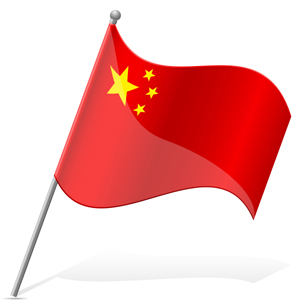China puts foreign groups under police supervision and requires them to find Chinese sponsors

Image from Shutterstock.
China has passed a new law requiring foreign nongovernmental organizations—known as NGOs—to register with police and to find official Chinese sponsors.
The law passed Thursday amid criticism by Western governments and foreign NGOs, the New York Times, the Wall Street Journal (sub. req.) and Reuters report. It takes effect Jan. 1.
The law authorizes police to search NGO offices and interrogate their representatives. It bans activities that threaten national security or social stability. Still unclear is what kind of Chinese groups will be approved to partner with the NGOs and how the process will work.
Secretary of State John Kerry said in a statement that the law “creates a highly uncertain and potentially hostile environment” for NGOs and their Chinese partners “that will no doubt discourage activities and initiatives.” He added, however, that the law does include certain improvements from the original draft legislation.
One police official told reporters that nonprofits already legally registered won’t have to reapply. However, China did not previously have regulations for registration of NGOs, so most groups have been operating “in a legal gray area,” the Times says.
The ABA’s Rule of Law Initiative has an office in Beijing. The initiative is not already registered and it will be subject to the new law. The ABA has not released a statement reacting to the new law.
According to the New York Times, some types of NGOs, including groups that work with Chinese human rights activists or lawyers, are unlikely to find official partners. The Times article gives as an example the Chinese Urgent Action Working Group, which offers legal assistance and training that supports “activist lawyers and grass-roots lawsuits against officials.” The group shut down after Chinese officials arrested its members.
The Times says the law “also raises questions of whether more mainstream foreign nongovernment organizations will independently decide to cut certain programs, like initiatives promoting government transparency, or self-censor to secure a Chinese partner and register with the police.”
The article refers to the suggestion that the ABA withdrew an offer to publish a book by a Chinese human rights lawyer because of fears it would adversely affect its projects in China. The ABA says the employee who made a publication offer to lawyer Teng Biao was misguided, and the employee erred again when citing concerns about “upsetting the Chinese government” as the reason for withdrawing the offer.
The ABA says it didn’t want to publish the book “for purely economic reasons” and its decision “was in no way related to ABA programs or operations in China.” In addition, the discussions never led to contract discussions or a signed commitment, the ABA said.
Teng rejected the ABA’s explanation in an email to a group that follows Chinese legal issues, the Wall Street Journal’s China Real Time Report has reported. Teng wrote that “self-censorship is almost everywhere, and some can be justified. But ABA’s cannot.”
See also:
ABA Journal: “China’s latest crackdown on lawyers is unprecedented, human rights monitors say”
Write a letter to the editor, share a story tip or update, or report an error.


